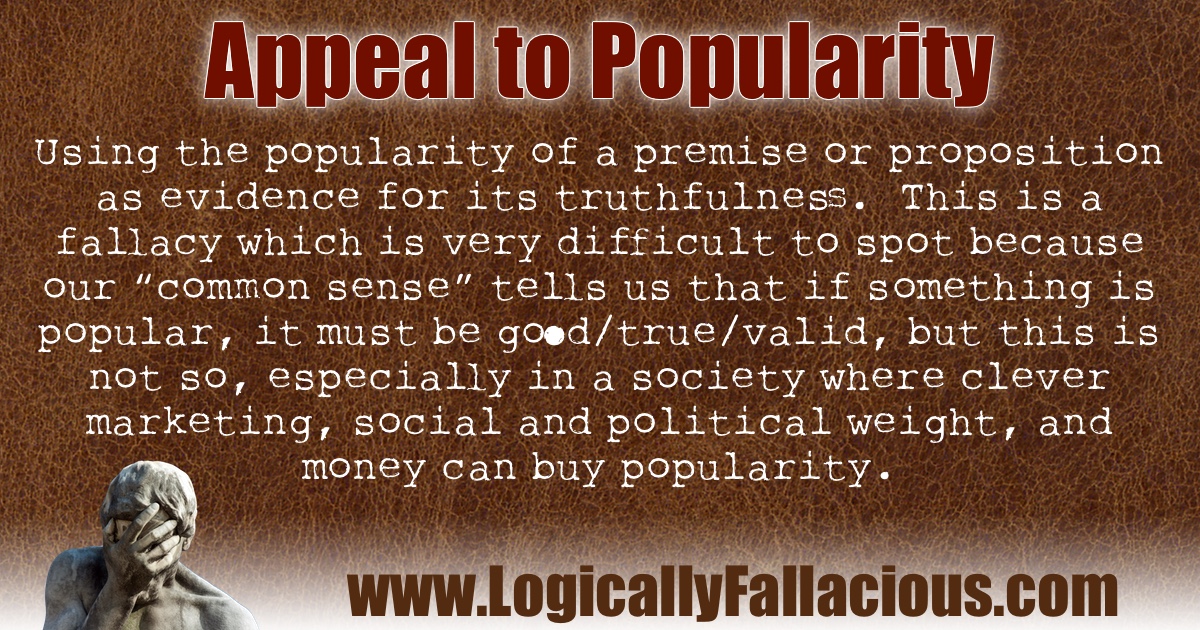argumentum ad numeram
(also see: appeal to common belief)
Description: Using the popularity of a premise or proposition as evidence for its truthfulness. This is a fallacy which is very difficult to spot because our “common sense” tells us that if something is popular, it must be good/true/valid, but this is not so, especially in a society where clever marketing, social and political weight, and money can buy popularity.
Logical Form:
Everybody is doing X.
Therefore, X must be the right thing to do.
Example #1:
Mormonism is one of the fastest growing sects of Christianity today so that whole story about Joseph Smith getting the golden plates that, unfortunately, disappeared back into heaven, must be true!
Explanation: Mormonism is indeed rapidly growing, but that fact does not prove the truth claims made by Mormonism in any way.
Example #2:
A 2005 Gallup Poll found that an estimated 25% of Americans over the age of 18 believe in astrology—or that the position of the stars and planets can affect people's lives. That is roughly 75,000,000 people. Therefore, there must be some truth to astrology!
Explanation: No, the popularity of the belief in astrology is not related to the truthfulness of astrological claims. Beliefs are often cultural memes that get passed on from person to person based on many factors other than truth.
Exception: When the claim being made is about the popularity or some related attribute that is a direct result of its popularity.
People seem to love the movie, The Shawshank Redemption. In fact, it is currently ranked #1 at IMDB.com, based on viewer ratings.
Tip: Avoid this fallacy like you avoid a kiss from your great aunt with the big cold sore on her lip.
